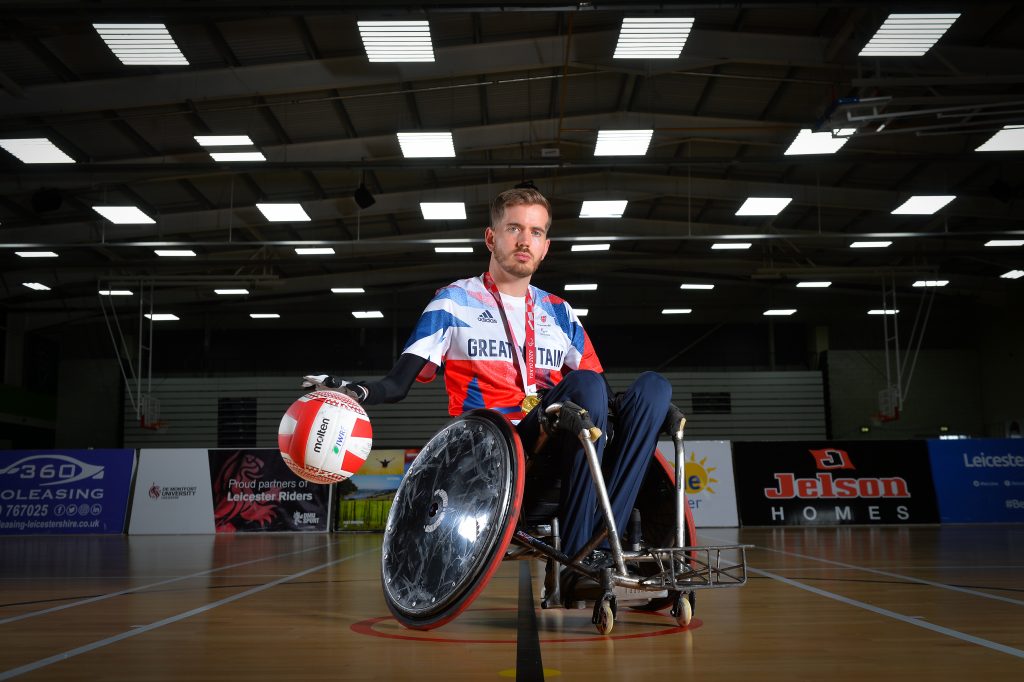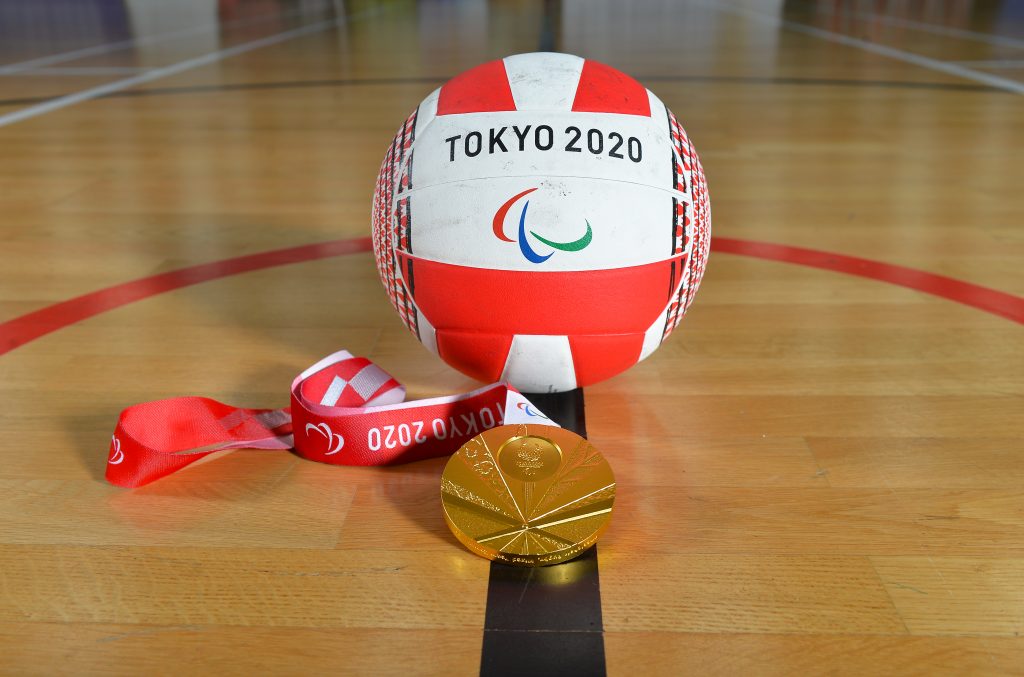Leicester Tigers wheelchair rugby player, Nick Cummins, is a Paralympian gold medallist. He was a part of the triumphant Great Britain squad for Tokyo 2021 and is also a University of Leicester History PhD student. He sat down with Pukaar Magazine to discuss his journey to winning a gold medal.

For Nick, the path to success wasn’t a straight one. In fact, prior to his success in Tokyo, he’d narrowly missed out on selection for the Rio 2016 Paralympic Games. Speaking on his journey to victory, he explains: “I had a number of setbacks. I wasn’t selected for the GB team from the development team, and I think I was only one of two people out of ten who wasn’t.” Although it was a disappointing experience, it didn’t dampen the sports star’s passion to be a part of the GB squad and his self-belief was unwavering. “Even though I had a knock back and it was disappointing to me, I believed that I was good enough to be in the squad.”
Nick had been a politics student at Leeds University when he’d contracted meningitis at 19 years old. Once an optimistic student with the world at his feet, he admits a two-year hospital stay made him feel “aimless” and unsure about the future. Following the illness, he was left with a lifelong disability and says that what followed his hospitalisation was a bleak period in his life: “I wasn’t really doing anything constructive and I was kind of lost. I was having a hard time adapting to being disabled.”
During his time in hospital, his sister who is a physiotherapist had told him about a documentary film called ‘Murderball’ which is centred around the rivalry between the United States and Canadian wheelchair rugby squads. Nick says that while watching the film, he was pleasantly surprised that “it didn’t show disabled people in this sort of fluffy light… It was about them as people with all their flaws,” but despite this, at this stage, he wasn’t compelled to take up the sport himself.
Nick admits that he hadn’t yet come to terms with his new reality and what his disability meant for the future. He explains: “I was of the mindset that I wasn’t going to be in a wheelchair, so I thought, well, I’ll play all the sports I played before. I won’t need to play wheelchair rugby.” It wasn’t until a few years later and further into his path of acceptance that he began to seriously consider taking up the sport.
After building up his fitness and entering the sport, the Paralympian explains that learning the tactics of the game wasn’t an overnight process, especially as he was entering wheelchair rugby from previously being able-bodied. In fact, Nick admits that he “wasn’t really very good” for a number of years, but says he did get a lot of advice and encouragement along the way.
By the time that lockdown was imposed in 2020, Nick had spent a number of years training within a team environment and says that almost overnight, he was forced to completely overhaul his fitness regime and go it alone. On how he made the transition work, he explains: “I kind of made my sitting room into a makeshift gym and then I pushed around the park and things like that. But it was hard to adapt and hard at times to stay motivated because it’s just not as much fun.”

However, despite the hurdles the team had encountered and their unconventional training regime, after boarding the flight to Tokyo, the athlete remained optimistic about the success of the squad. “We went into the tournament fourth in the world so we were gunning for a medal and obviously we aimed high.” There were changes that had been made to the event in light of the pandemic, such as the absence of the crowds, but Nick is full of praise for the efforts of the organisers: “It was still actually a lot like how I’d imagined it to be, which I think is a testament to the Japanese people. A lot of the things that make the Paralympics special were still there and it still had that jovial atmosphere.”
The final event began and what followed was a tense match but as it neared the end, it became clear that the team were going to bring back their very first gold medal. “We were a few goals up with a couple of minutes left and it got to the point where we all felt confident we were going to win and there was a massive outpouring of joy and happiness.” When the win was confirmed and Nick realised he’d won a gold medal, the victory was sweeter because he got to share it with his teammates. Looking back on the win, he says: “It was an amazing feeling. For myself, obviously it was just so much joy but also, looking around at my teammates and seeing them so happy and the staff and everyone who’s worked so hard, it was really special.”
Since his return home, although Nick has his sights firmly set on the 2024 Paris Paralympic Games, he’s also developing his career beyond the sport. On the decision to continue pursuing his academic goals, the University of Leicester student explains: “I was very keen to avoid just playing sport and not thinking about the future and also wanted a challenge. By the end of next year, I should have hopefully a PhD as well as a gold medal and that was always a dream of mine.”
Nick is also optimistic about the future of the Paralympics, and with this year’s event receiving more television coverage than ever, Nick feels that perceptions are changing. “It’s really hard to win a Paralympic medal of any kind, especially a gold. It’s hard to get to the Paralympics, full stop. It requires the same kind of dedication and skills and aptitudes as getting into the Olympics and I think that’s becoming more and more respected.”



